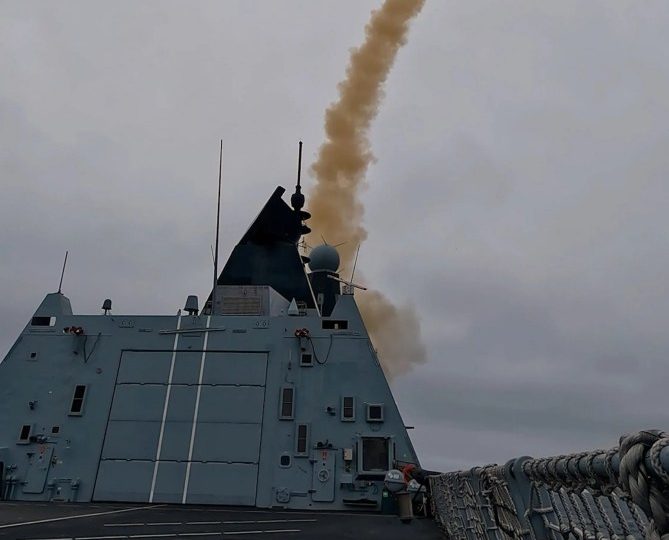BRITAIN’S is beefing up its defences in the Red Sea by upgrading its Sea Viper surface to air missile system.
The anti drone system will be turbocharged with new warheads and software to improve its ability to track, target and destroy air threats from 70 miles away.
Britain is upgrading its Sea Viper surface to air missile system following increased tension in the Red SeaSWNS
Some £450 million is being spent on the overhaul – supporting 350 British defence jobs.
Defence Secretary Grant Shapps said: “As the situation in the Middle East worsens, it is vital that we adapt to keep the UK, our allies and partners safe.
“Sea Viper has been at the forefront of this, being the Navy’s weapon of choice in the first shooting down of an aerial threat in more than 30 years.
“Our strong and enduring relationship with British industry has ensured we can deploy the latest technological capabilities wherever they are required while supporting hundreds of jobs across the country and bolstering UK prosperity.”
Britain’s ships in the Red Sea have come under attack from Houthi rebels who have vowed to inflict economic pain in the west in revenge for the war in Gaza.
Navy ship HMS Diamond shot down a rebel drone using the existing Sea Viper system last month.
Yesterday Houthi rebels guaranteed safe passage for Chinese and Russian ships in the Red Sea, as they continue to wage war on US ships.
Houthi spokesman Muhammed al-Bukhaiti has criticised the US and UK for their role in the operations against Gaza, saying that all vessels in the region are safe as long as they have no links to Israel.
Shortly after, the Houthis launched a fresh attack on an American ship in the Gulf of Aden.
In a statement posted to social media, the Houthis claimed that their naval forces carried out an operation against the Chem Ranger “with several appropriate naval missiles, resulting in direct hits”.
The US has since denied this.
Leave a comment








